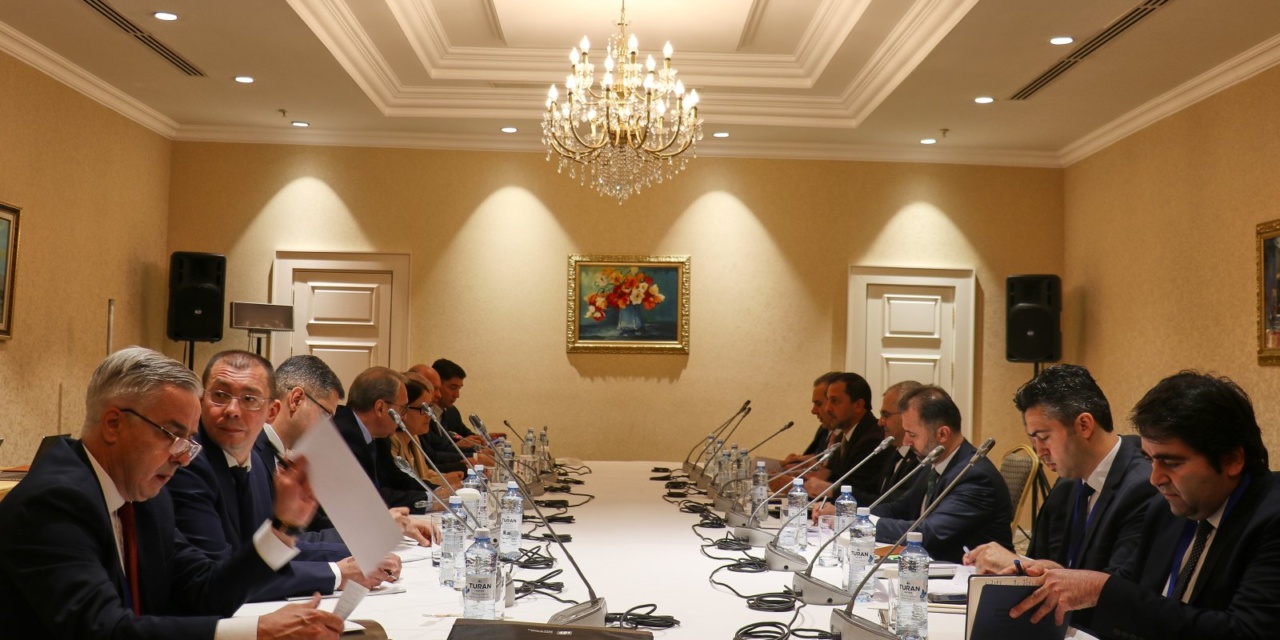Turkish and Iranian delegations at talks in Astana, Kazakhstan, June 20, 2023
The Assad regime has joined the 6 1/2-year “Astana process” of Turkey, Russia, and Iran — but already the discussions are foundering in dispute.
The regime has hailed a political victory in getting to the 20th round of the talks, which began in January 2017. The invitation to join completes the projection of “normalization”, including restored relations with some Arab countries, despite the regime’s ongoing repression and the fracturing of Syria after the March 2011 uprising.
But at Tuesday’s meeting in Kazakhstan’s capital Astana, Deputy Foreign Minister Ayman Sousan immediately challenged Turkey with the demand that Ankara withdraws its forces from opposition territory in northwest Syria.
“This forms the cornerstone for any discussion on other issues related to the return of refugees, combating terrorism, and bilateral relations,” Sousan asserted.
The regime is hoping to use the withdrawal to fulfil Bashar al-Assad’s long-standing declaration that he will “regain every inch” of the country.
The line not only will meet the resistance for Turkey, which supported anti-Assad groups for years, but also threatens the regime’s quest for normalization. Arab countries such as Saudi Arabia want Assad to reduce dependence on Iran, an essential prop for the leader’s hold on power.
See also A Turkey-Iran-Russia Meeting in Moscow with the Assad Regime
The Deputy Foreign Ministers of the four participants have been joined by the UN special envoy for Syria, Geir Pedersen, and by observers from Jordan, Iraq, and Lebanon.
But amid the Assad’s regime intransigence — enabled by Russia and Iran — Pedersen has had no success since his appointment in January 2019. He said recently that “for the time being, a comprehensive solution is not doable”, declaring an incremental approach to meet the needs of the Syrian people.
The Assad regime and Turkey could find common ground with an assault on Kurdish-controlled northeast Syria, as President Recep Tayyip Erdoğan considers the Kurds to be part of the Turkish Kurdish insurgency PKK.
However, any operations to end Kurdish autonomy could be opposed by the US, which has supported the Kurdish-led Syrian Democratic Forces since 2015.
So instead of envisaging any political resolution, Russia is seeking to promote diplomatic legitimacy amid Moscow’s isolation over its invasion of Ukraine.
Having hosted the Assad regime as well as Turkey and Iran in a May meeting in Moscow, Russian Deputy Foreign Minister Mikhail Boganov proclaimed Tuesday, “This is a very crucial process. We have had a backlog of issues for 12 years.”


Trackbacks/Pingbacks